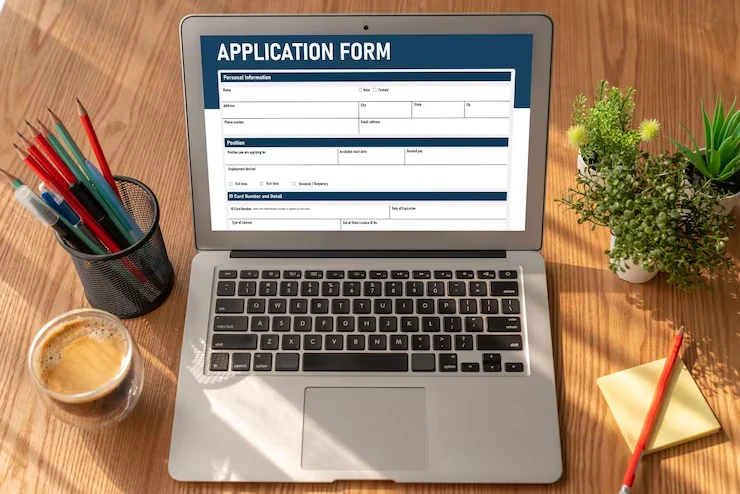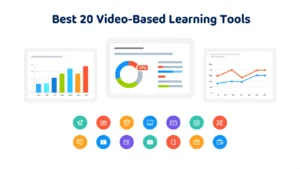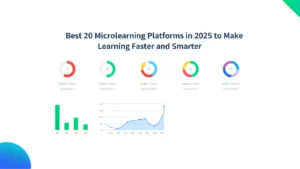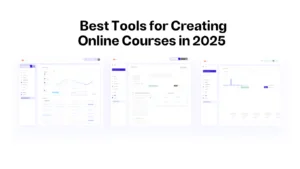Last year, one of our students—let’s call her Leila—missed a UCAS reference deadline by two days. She had everything ready: high predicted grades, a solid personal statement, and four solid uni choices. But her referee submitted late. That small oversight led to a rejection from her top university.
And she wasn’t alone. In 2024, over 16,000 applications were flagged as incomplete due to missing documents or improperly filled sections, according to UCAS internal stats (Freedom of Information request, 2024). That’s 16,000 opportunities lost—not because students weren’t good enough, but because they didn’t know the system well enough.
That’s why we created this guide—to stop stories like that from repeating in the 2025 UCAS cycle.
We’ve worked with hundreds of UK and international students on perfecting their UCAS submissions. This post gives you the full checklist—what to do, how to do it right, and what everyone else forgets.
Schedule a consultation before you start your UCAS application. We’ll show you how to make every section count.
UCAS Application Checklist 2025: Overview and Key Deadlines

The 2025 UCAS cycle is already active. Whether you’re applying to Oxbridge, a Russell Group university, or anywhere else in the UK, here’s what you need to have on your radar.
Key Dates for the 2025 UCAS Cycle
(Source: UCAS Adviser News 2025)
| Stage | Deadline |
| UCAS Undergraduate Open | 14 May 2024 |
| Oxbridge/Medicine Deadline | 15 October 2024 (6 PM UK) |
| Standard Applications | 29 January 2025 (6 PM UK) |
| Extra Opens | 28 February 2025 |
| Clearing Opens | 5 July 2025 |
What’s often missed is the internal school deadlines, which are usually 2–3 weeks earlier than the official UCAS dates. These are non-negotiable. If your referee misses their slot, your application is automatically downgraded or delayed.
Book a call with our UCAS application expert to make sure you’re meeting your deadlines without any last-minute pressure.
How the UCAS Application is Structured (And Why People Get It Wrong)

UCAS applications are made up of 13 key sections. Most people think it’s just about the personal statement, but most rejections come from minor errors in the other fields.
Let’s break each section down.
1. Personal Details
- Fill in your legal name as it appears on your passport or legal ID.
- Use a permanent email address, not a school one that gets deactivated in summer.
- For international students: input correct visa/residency info early.
2. Contact and Residency Info
- Postcode mistakes lead to mismatched school listings—double-check.
- If you’re under local authority care or a refugee/asylum seeker, tick the correct box. This often qualifies you for support.
3. Education History
- List every qualification: GCSEs, A-levels, IB, or equivalent.
- Predicted grades: Be realistic. Admissions officers see inflated predictions all the time.
- Key phrase 1: “How to fill out a UCAS application” often leads people to forums full of wrong advice. Don’t risk it—stick to UCAS-approved formats.
4. Employment
- Even Saturday jobs count. Show work ethic, time management, and transferable skills.
- Don’t lie. All jobs listed are potentially verifiable.
Need help positioning non-academic experience in your application? Schedule a consultation.
Building a Winning Personal Statement (The 47-Line Filter)
What Makes a Strong UCAS Personal Statement?
- It’s not a story. It’s not a summary. It’s a strategic pitch to an academic gatekeeper.
- You have 4,000 characters or 47 lines, whichever comes first.
- Use the hook-proof-value-aspiration format.
Structure Breakdown:
- Opening Hook: Start with a sentence that makes them want to read the next.
- Academic Evidence: Show how your coursework links to the course you’re applying for.
- Personal Connection: What made you choose this subject?
- Future Vision: What do you plan to do with this degree?
- Final Impression: Reiterate passion without repeating content.
Hidden Tip:
UCAS personal statements are scanned by Copycatch plagiarism software. AI content with no editing often gets flagged.
In 2024, UCAS flagged over 4,500 personal statements for suspected AI-generated or copied content (The Times Higher Education, 2024).
Want us to review your statement before submission? Book a call and send your draft for feedback.
Choosing the Right Courses: Not Just About the Uni
One of the most common regrets applicants share with us is:
“I applied based on rankings—not on fit.”
What You Should Be Asking:
- Does this university accept students with your UCAS Tariff score?
- Does it require admissions tests like LNAT, UCAT, and MAT?
- Are you a strong fit for Oxbridge’s intense tutorial system?
- Does the course offer a year abroad or placement options?
Stats You Probably Didn’t Know:
- 53% of Russell Group rejections cite “lack of academic fit” as a reason, despite predicted grades being sufficient (Source: UCAS internal feedback survey, 2024).
Want help mapping your choices to your profile? Schedule a consultation with our admissions team.
References: Why You Shouldn’t Leave It to Your Teacher Alone
What You Need to Know:
- UCAS references are limited to 4,000 characters, too.
- A rushed or generic reference can undermine your application, even if your personal statement is strong.
- Your school may require you to submit a “reference sheet”. This helps them write specifically about you.
Smart Tip:
- Prepare a reference draft or bullet points of achievements.
- Include academic performance, work ethic, extracurriculars, and subject-specific contributions.
Not sure how to guide your referee? Download our free reference template and book a call to review it.
UCAS for International Students: Hidden Pitfalls and How to Avoid Them
If you’re applying from outside the UK, the process has some critical differences.
What International Applicants Miss:
- Visa application timing: You must wait for your CAS (Confirmation of Acceptance for Studies) letter after accepting an offer.
- Language requirements: IELTS or TOEFL is often required, even if you studied in English-speaking schools.
- Tuition deposits: Non-refundable and must be paid before CAS issuance.
Stat to Know:
- 1 in 5 international applicants missed their visa timeline in 2024 and had to defer (Source: British Council Study Report 2024).
Application Fee:
- £27.50 for up to 5 courses
- No fee waivers for international applicants
Need help aligning UCAS with visa timelines? Book a consultation with our international admissions coach.
Common Mistakes That Cost Students Offers (And How to Dodge Them)

- Submitting early without proofreading
- Using the wrong buzzword (UCAS Centre Code from your school)
- Applying to both Oxford and Cambridge (you can’t)
- Forgetting reference submission deadlines
- Generic personal statements
- Ignoring university-specific entry tests or portfolio uploads
- Listing the wrong qualifications or grades
Download: UCAS Application Checklist for 2025 (Free Resource)
Includes:
- Editable Notion checklist
- PDF version with all 13 sections
- Bonus: Personal Statement Planning Grid
- Mobile-view version for fast checking on the results day
Grab the checklist and make sure your application is complete before you hit submit. Schedule a call if you want us to review your full application.
Why Choose Us to Guide Your UCAS 2025 Application?

You’ve probably read a dozen guides, downloaded checklists, and maybe even asked ChatGPT for help. But here’s the truth:
Most advice is too generic.
What works for one applicant won’t work for another. We’ve seen high-performing students get rejected simply because they didn’t design their applications, misunderstood deadlines, or submitted a weak reference. That’s where we step in—not with templated content, but with strategic advice based on real admissions insight.
At Pearl Lemon Academy, we’ve helped students get into:
- Oxford, Cambridge, LSE, UCL
- Competitive medicine and law programs
- UK universities as international applicants from over 20 countries
Here’s what sets us apart:
1. We Know the System From the Inside
Our team includes former admissions tutors, education strategists, and UCAS insiders. We know how applications are actually reviewed, and we teach you how to shape your submission accordingly.
2. We Go Beyond “Good Enough”
We don’t just check your spelling and grammar—we question your course choices, challenge your personal statement structure, and test every part of your application before you submit it.
3. Your Application Gets a Dedicated Specialist
No chatbots. No templates. You’ll work 1:1 with an expert who has reviewed thousands of UCAS applications and helped students like you stand out in a crowded field.
4. International Applicants? We Speak Your Language
From visa timing to UK qualification conversions, we understand the additional challenges non-UK applicants face. We’ve helped students from India, Nigeria, the US, the EU, and Southeast Asia avoid common mistakes and meet tough deadlines.
5. We Don’t Waste Your Time
No lectures, no hand-waving, no unnecessary calls. Just a clear plan, sharp feedback, and real support where it counts most—before your application hits the UCAS portal.
If you’re serious about getting it right the first time, schedule a consultation. We’ll show you exactly how we’ll help, step-by-step.
FAQs: Real UCAS Questions Answered
Can I apply late and still get in?
Yes—but only through UCAS Extra or Clearing, and only if universities still have open spaces. Your chances depend heavily on course popularity and how competitive your application is.
Can I apply to more than 5 universities?
Not via the standard UCAS form. You can add one extra choice during UCAS Extra or reapply with a fresh set of choices through Clearing.
Will AI-written personal statements get flagged?
Yes, if unedited. Copycatch software detects repetitive phrasing, unnatural sentence structures, and known AI-generated patterns. Use AI only for outlines, not final versions.
Do all courses require predicted grades?
Yes. Without predicted grades submitted by your school or referee, your application is classified as incomplete and may not be considered at all.
Can I submit different personal statements for each university?
No. UCAS sends one personal statement to all choices. If you’re applying to very different courses, write a statement that focuses on overlapping skills and interests.
What is a UCAS buzzword, and why is it important?
A buzzword links your application to your school or college. Without it, your referee can’t submit your reference, and your application may be seen as submitted “independently.”
Can I change my university or course choices after submitting?
Only before the January deadline. After that, changes can be made via UCAS Extra (one at a time) or during Clearing, depending on course availability.
Do I need to take additional tests like the UCAT, LNAT, or MAT?
Yes, for certain courses like medicine, law, and maths. These are mandatory and often have earlier registration deadlines than the UCAS form itself.
How long does it take to receive university decisions?
Responses can come within a few weeks or months. Most offers are sent between November and March, depending on the university and course demand.
Final Thought: You Don’t Need to Be Perfect—You Need to Be Prepared
Most applicants don’t get rejected because they’re unqualified. They get rejected because they’re unstructured.
This checklist is built to save you from missed chances and second-guessing. But the real edge comes from doing things in the right order, at the right time, and with the right eyes on it before you hit submit.
Ready to put this checklist into action? Schedule a consultation with our UCAS admissions team and let’s build your application the right way from the start.




